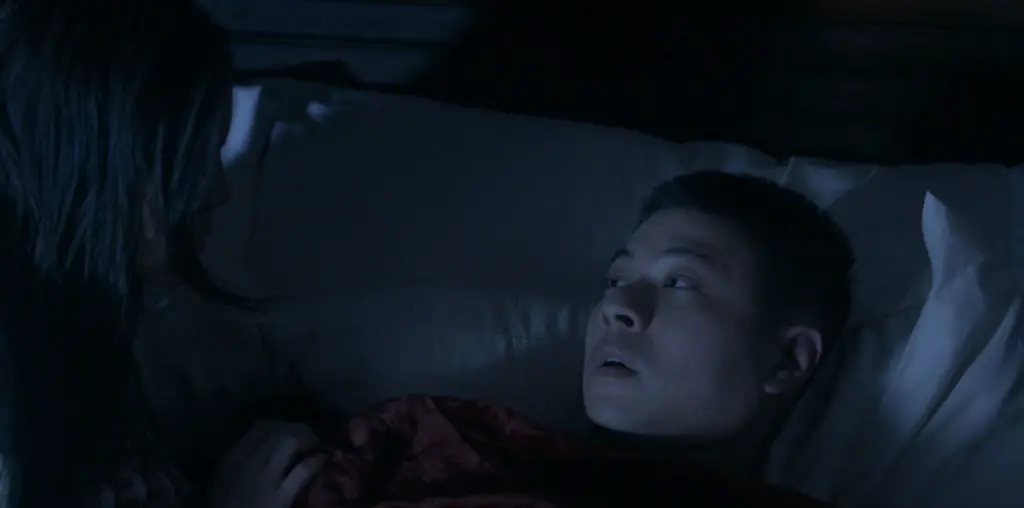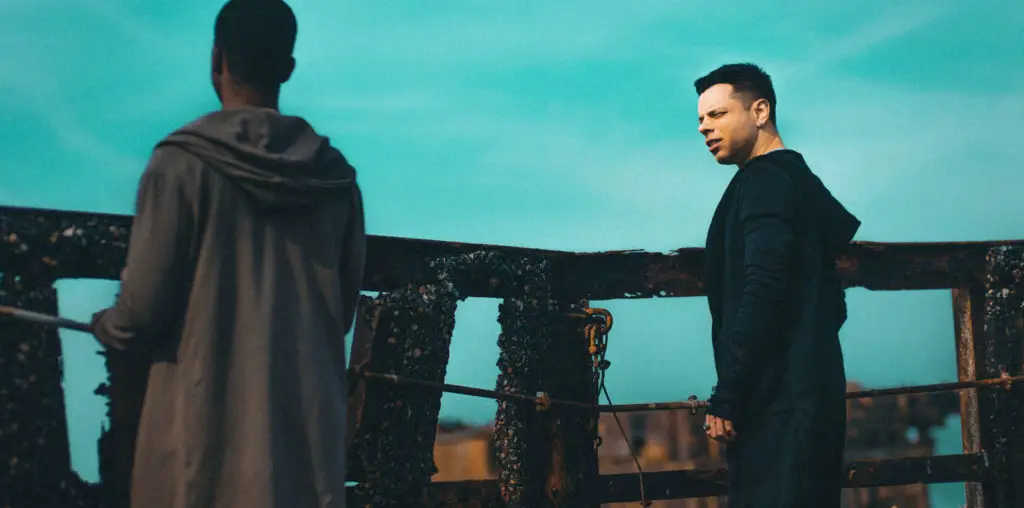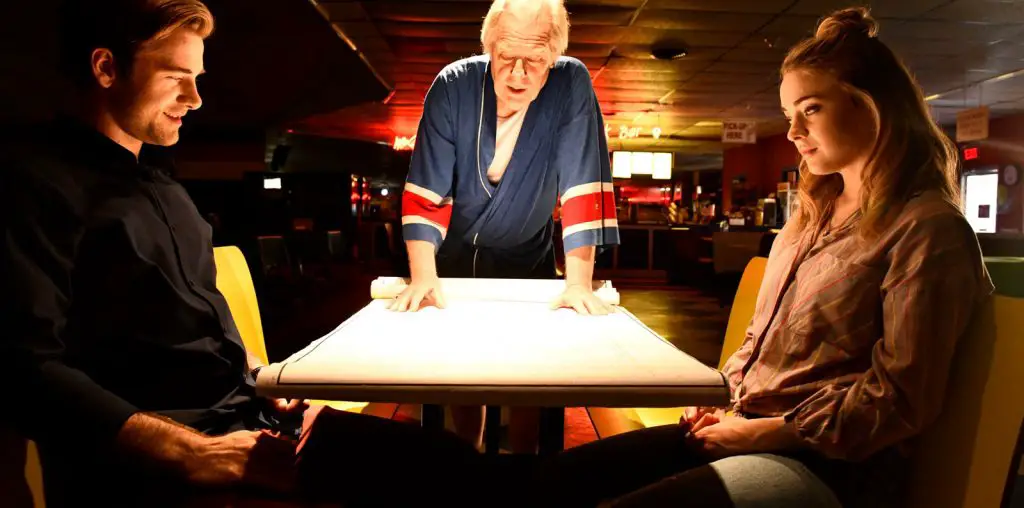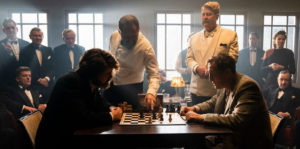
Stefan Zweig, an Austrian novelist known for gently comedic/dramatic novels, is experiencing a renaissance of sorts. Beginning with 2014’s The Grand Budapest Hotel, which is loosely based on a few of Zweig’s short fiction stories, world cinema has taken note of the tragicomic nature of his work. At the height of his powers, Zweig was writing in exile while the Third Reich ruled his native Austria. And now, we find director Phillip Stölzl and writer Eldar Grigorian have adapted Chess Story.
Chess Story concerns the exploits of Dr. Joseph Bartok (Oliver Mascucci). He is a prominent Viennese businessman and served with his father as the Notary Public and Accountant for the noble class of Vienna. When the Germans lay claim to Austria, Dr. Bartok is on the list of notable Austrians the Nazis wish to kidnap. Confronted with the head of the Vienna branch of the SS, Franz Joseph Böhm (portrayed with sociopathic charm by Albrecht Schuch), Dr. Bartok begins a forced and involuntary “stay” at the Hotel Metropole, which the SS has taken over as its base of operations.
Böhm has discerned Bartok’s associations with the Viennese nobility. While he will not subject Dr. Bartok to physical torture, he’s not above mental torment. Stuck in isolation for long periods, Böhm is intent on causing Bartok enough discomfort to relay to the head of the Vienna office where the Austrian monies he’s protecting exist so that the SS will seize them.
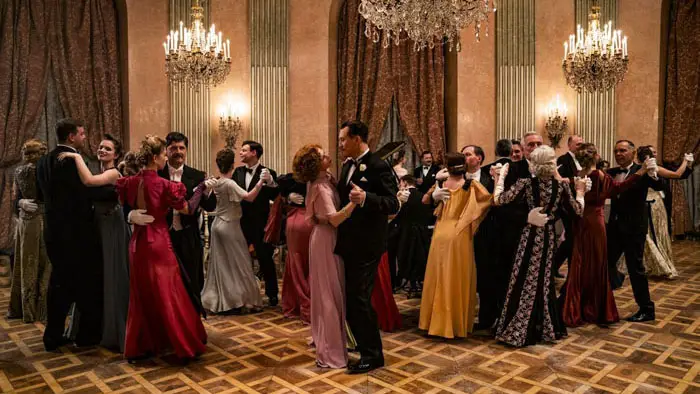
“…being a prisoner of the Viennese SS becomes more grim and terrible, the escapes into the fantasy of the world of chess become more vivid…”
Dr. Bartok’s mind, desperate to escape from the hell of confinement in a poorly maintained hotel room, recalls an instance wherein he was aboard a cruise liner in the early 1930s with a chess master. There, in a mode of lucid dreaming, Bartok dives headfirst into chess. After forcing a draw against the current world champion of chess, Bartok comes to know Owen McConnor (Rolf Lassgård), who owns the boat he imagines he is staying on. As the reality of being a prisoner of the Viennese SS becomes more grim and terrible, the escapes into the fantasy of the world of chess become more vivid and hopeful. Finding a chess book in a pile of tomes the Nazis intend to burn, reality and fantasy begin to merge as Dr. Bartok starts to learn chess with great zeal.
This film pulls no punches. At one point, Bartok will be “lightly” tormented by Johann Pratl (Andreas Lust). After that moment, Chess Story becomes bleaker in both the fantasy and reality. The film truly becomes a chess match with dangerous stakes between Bartok and Böhm.
Stölzl’s direction is subtle and light. There’s a clear appreciation of how vessels, hotel rooms, and people age and rust. His aim to present the story in an unflinching manner is most laudable. It may be a mostly humorless affair, however, I found it captivating throughout its runtime.
The film is an acting showcase. The entire ensemble is fantastic. While the film is principally concerned with Bartok’s reality, the fantasy sequences are a welcome respite. The camera work is simplistic, elegant, and easy to follow. No matter what depravity is being performed on the screen, you will be watching it.
Chess Story is a subtle, soft-spoken killer of a film. It’s absolutely worth your time if you like World War II-era dramas. Seek it out.
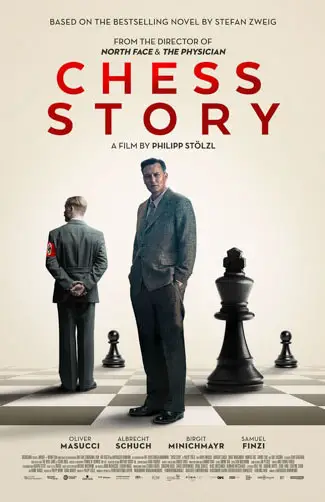
"…seek it out."
